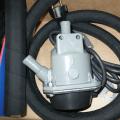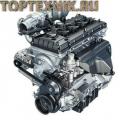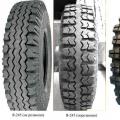This problem, when the gasoline smells from the exhaust pipe, plagues many motorists. Not only are all people already adults and understand, jokes are bad with gasoline.
In addition to this problem, one more nuisance is discovered - the consumption of gasoline increases. The first step in detecting these problems is to start the inspection from the hood to the gas tank.
It is not uncommon for the nut of the gas line supply to the carburetor to loosen, and the radiator fan blows gas vapors back to the muffler.
Next, you should go to the inspection pit and carefully inspect the entire path of movement of gasoline from the gas tank to the carburetor or injectors if you have an injection engine. Along the way, tighten all fittings and clamps on the connecting hoses of the gas line.
There are often cases when on domestic cars after only 3-4 years of operation, the walls of the gas tank resemble a sieve (immediately to help the article "?"). If by inspection you did not find traces of gasoline leaks, then you should move on to a deeper study of this problem.
Common motor problems
Does the exhaust pipe smell of gasoline and are you uncomfortable driving your car? The first step is to determine in which particular cylinder the fuel does not burn and rushes along the exhaust manifold further. A wet spark plug or one that looks greasy than others will show you the main gas leak.

If all candles are evenly greased, then open the oil filler neck and observe the condition of the oil and the presence of light brown foam on the filler cap. This foam indicates that since , the entire combustible mixture does not burn and the fuel particles are carried away into the exhaust pipe.
If you have a compression gauge, this is easy to determine.
There are frequent cases, when the chamfer of one exhaust valve in the combustion chamber gradually burns out and through it the gasoline-air mixture constantly breaks into the exhaust pipe. An experienced mechanic will help to eliminate the gasoline breakthrough in it.
(banner_content)
It is necessary to replace the piston rings, valves, and in advanced cases, the aluminum pistons themselves. That is, you are guaranteed an average engine repair. And yet, do not rush to repair, at first.
Not everything is so bad... A loose cap on a spark plug or a high voltage spark plug wire with a breakdown will cause the spark plug to work intermittently, which will give the gasoline a free run into the exhaust manifold.
But do not be alarmed if you see some kind of liquid pouring out of the muffler in a trickle or drop by drop, this is not gasoline, but steam condensate that forms on the cold walls of the muffler when the engine is started. Although condensation can also smell like gasoline.

Injection problems
If you have a modern injection vehicle, and the smell from the muffler appeared like the old "Volga", therefore, the fuel is re-enriched. One of the reasons for this is. Also on injection machines there is a valve that regulates the discharge of unused gasoline back into the gas tank. If it fails, the combustible mixture will be greatly over-enriched.
A faulty air mixture sensor creates the same problem. An experienced auto electrician will quickly fix these problems.
You have a modern car, but have you noticed that the exhaust pipe smells like gasoline? There is no need to panic, there is an explanation for this. A catalyst is installed in the exhaust pipe, which is obliged to clean and afterburn harmful substances and gasoline vapors in the exhaust gases. But until the catalyst is heated to a temperature of 250 ° C, it does not purify anything.
Its operating temperature is 600-800 ° C.... Therefore, Western experts recommend driving as soon as the car starts up so that the catalyst warms up sooner.
Additionally, you should know that the lambda probe practically does not work on an unheated car. Therefore, the first minutes after starting the engine there is always a re-enriched mixture, which entails the smell of unburned gasoline. After warming up the car, this unpleasant effect disappears.
This problem worries many motorists, because they are well aware that it is not worth joking with gasoline. But another nuisance is added to this problem - fuel consumption increases. If such a problem is found, the first thing to do is to inspect the entire body of the car from the hood to the fuel tank. Sometimes it happens that the nut of the fuel supply line to the carburetor looses. The radiator fan blows gasoline fumes back to the muffler.
After finding the cause of the malfunction, the car must be put on the inspection hole and very carefully trace the path of the fuel from the fuel tank to the carburetor, if the engine is injector, then to the nozzles. It will be necessary to tighten all fittings and clamps on the connecting hoses of the fuel line.
Often on domestic cars for some 3-5 years of operation, the gas tank turns into a sieve. If no gasoline leak was found during the inspection, then we should try to study this problem in as much detail as possible.
Possible engine problems
Does the muffler smell of gasoline and is it not very comfortable to drive a car? Then, the first thing to do is to unscrew the candles and try to understand in which of the cylinders the fuel does not burn and goes further along the exhaust manifold. A wet or greasy spark plug will show where the gasoline is leaking.
It is not uncommon for the chamfer of one of the exhaust valves in the combustion chamber to burn. It is from there that the fuel-air mixture exits into the exhaust pipe. An experienced auto mechanic can help eliminate the penetration of the gasoline mixture.
It will be necessary to change the rings on the pistons, valves, and sometimes the pistons themselves. So, we can assume that the average repair of the power unit to the car owner is provided. However, there is no need to rush to repair, at first it is better to diagnose the motor, because not always and not everything is so hopeless.
A poorly seated spark plug cap or high voltage wire can cause the spark plug to work intermittently. This can allow fuel to flow freely into the exhaust manifold. Do not be alarmed if some liquid suddenly pours out of the muffler, because this is not fuel, but condensate formed on the walls of the muffler when the engine is started. Of course, it can smell of gasoline, but don't worry, it's not gasoline.
Modern engine problems
If you drive a modern fuel-injected car, and from the "Glushak" "rushing" like the old "Volzhana", we can conclude that the fuel is being over-enriched. The reason may be incorrect operation of the lambda probe. On injection cars there is a valve that regulates the discharge of unburned fuel back into the gas tank. If it breaks down, gasoline will be very much over-enriched. A failed air mixture sensor can create a similar problem. An auto electrician will be able to "sort out" such a malfunction very quickly.
What to do if you smell gasoline from the muffler?
First of all, don't panic, because it can be easily explained. The task of the collector located in the exhaust pipe is to clean and burn off the fuel vapors that remain in the exhaust gases. Until the catalyst warms up to 250 degrees, it will not clean anything, because its operating temperature is 600-800 degrees. Therefore, it is recommended to go as soon as the car starts up. This will allow the catalyst to warm up faster.
To begin with, during the operation of the vehicle, drivers in some cases note the appearance of a distinct smell of gasoline in the cabin or while being near the car.
It is important to understand that this sign indicates the need for an immediate diagnosis, since the smell of fuel often indicates a depressurization and fuel leaks.
In this article, we will talk about why the smell of gasoline appears in the cabin when the engine is started or smells like fuel when near a car with a running or muffled one, as well as what the driver should do if such a malfunction is found.
Read in this article
There is a smell of gasoline in the car: reasons

So, let's immediately note that the smell of gasoline in the car may not appear constantly, but only under certain conditions. For example, in severe frosts or in the heat, when a cold engine is just starting or after warming up the power unit, when refueling a full one, etc.
In any case, it is necessary to establish the reason for the appearance of the smell. Note that in some cases it is rather difficult to quickly solve the problem. It is necessary to check the elements of the fuel system in stages.
- First of all, you need to start diagnostics from the gas tank and its cover. The tank, especially on older cars, can rot. The tank mounts also suffer, as a result of which it begins to move. Also, over time, the places of welds, etc., become unusable.
Also, the likelihood of mechanical damage should not be excluded. One way or another, but even a minor leak would mean that fuel leaks out, filling the car interior with vapors, etc.
The cap, which is screwed into the filler neck, also deserves special attention. In many cases, this area is the source of the gasoline odor. The fact is that the lid not only tightly closes the tank, but also has an additional valve.
The specified valve is needed in order to avoid an increase in pressure in the tank during temperature fluctuations and expansion of gasoline with heating. If the valve is clogged or wedged, and there are problems with the cover gasket, then a distinct smell of gasoline will appear.
- Let's go further. If everything is normal with the tank, then you need to inspect the fuel line, joints and clamps, and also check the integrity of the pipes. Through this line, gasoline is both supplied to the internal combustion engine (supply), and its surplus is returned back to the tank (return).
Hoses can start to leak, and the reliability of their fastenings deteriorates. It is quite obvious that in this case a leak also occurs, and gasoline fumes will annoy the driver with the smell of fuel in the cabin.
The next item to check is the fuel pump. On cars with a gasoline pump, it is often located under the hood or outside the tank. At the same time, a submersible gas pump (located in gasoline for fuel intake and cooling), that is, it is actually "screwed" into the gas tank. As a rule, on many cars with an injector, the pump is located under the rear seat directly in the vehicle interior.
If problems with the gasket appear at the installation site of the electric pump, the threads of the cover are cracked or damaged, etc., then a persistent smell of evaporating gasoline appears in the cabin.
Fuel filters, especially when dirty and low in capacity, can also cause the smell of gasoline in your car. The reason is an increase in pressure in the fuel line, after which the joints of the pipes begin to flow, gasoline can flow at the "inlet" before or at the "outlet" after the filter itself.
To eliminate this cause, the fuel filter must be changed, and as part of further operation, correctly select the element for a specific car and replace the filter according to the regulations, avoiding severe contamination of the filter element.
- The fuel supply system with a carburetor requires a separate check of this fuel supply system to the engine. Often, at the same time, its incorrect adjustment or device malfunctions lead to the fact that gasoline overflows.
Naturally, active evaporation of fuel in the engine compartment will cause gasoline vapors to enter the cabin. To prevent this from happening, it is necessary to correctly adjust the fuel level in the float chamber, check the condition of the nozzles, regularly, etc.
Why does it smell like gasoline when starting the engine "cold" or "hot"


Note that if the smell of gasoline is heard only for some time after starting the injection engine, then this is not a malfunction in all cases. Often, the smell of fuel appears after a cold start in winter, then disappears completely as the power unit warms up. If so, then you need to understand the following:
- receives information from, which "reports" that the unit is cold.
- Based on this information, the control unit enriches the mixture, and significantly, and also increases the speed to the so-called "warm-up".
- When operating on a re-enriched mixture in the cylinders of a cold engine, the fuel does not burn completely, part of it enters the exhaust system.
It turns out that the smell of unburned gasoline, which the driver feels, comes from the exhaust pipe. After a slight warm-up of the engine, the fuel will begin to burn more fully and the smell will disappear. A similar situation for many cars can be considered the norm.
However, in some cases it is also appropriate to talk about malfunctions, especially on modern cars that comply with the Euro-4 standard and higher. The fact is that incomplete combustion of fuel can occur not only as a result of re-enrichment of the mixture by the ECU itself to maintain stable operation of the internal combustion engine after a cold start, but also for other reasons.
Causes of whistling and increased noise during the operation of the fuel pump, pump overheating. How to diagnose and fix the breakdown yourself. Tips and tricks.



We are already accustomed to our own car, which can not only help us simplify our lives by significantly reducing the distance, more precisely the time spent to move from point "A" to point "B". But this is if the car runs like clockwork. However, as soon as a problem appears and you have to look for ways to solve it, often spending substantial sums only on diagnostics. However, some of the problems can be found on our own. The main thing is to know at least where to look and what to look for. Let's look at the problem when you suddenly start to smell the smell of gasoline that appears in the cabin and where it shouldn't be at all. This problem is one of the most important and requires an urgent solution, since it can serve as a warning that more serious problems may appear soon. And most often, the smell of gasoline indicates a fuel leak and leave everything as it should not be. Let's consider the main places where the smell of gasoline can appear, where it should not be.
The main reasons for the smell of gasoline in the car
There may be several reasons for this. Moreover, it will be difficult to figure out right away why and how the smell of gasoline penetrates into the cabin. And yet, this will not always be a wake-up call. For example, the smell of gasoline appears if the car is overloaded or you have just filled the tank. And if the smell appeared suddenly, then it is worth inspecting the car at the first opportunity. Here are a few places where the smell of gas can come from in the cabin:
1.The tank of the car. In this case, the problem arises if holes of various origins have formed in the tank itself, as a result of which fuel is lost. At the same time, its vapors through various technical openings can penetrate into the car interior. What can serve this? There can be many reasons. First of all, it can be trivial wear of both the tank itself and the mountings, as a result of which it gets damaged while driving on our "ideal" roads, welds can come apart.
2. Tank cover. It so happens that the smell of gasoline penetrates into the cabin precisely through the cover. The reason may lie in the wear and destruction of a special gasket or valve, which serve to tightly close the lid and release, if necessary, excessive pressure in the tank when the fuel begins to expand. It is solved by replacing the cover or replacing the gasket - as it is convenient for anyone.
3. Fuel line, including clamps and pipes. If the tank and lid are normal, then we begin to track the paths along which the fuel enters the engine. The thing is that no one has canceled wear and tear, and over time there are leaks in the hoses, fastenings weaken, as a result of which fuel leaves, and its smell appears in the cabin.
4. Gasoline pump. As a result of a malfunction or clogging, gasoline odors can spread and enter the passenger compartment. Just in case, it is worth knowing that injection machines are equipped with a pump in the tank, while for carburetor ones the pump is under the hood of the engine. Experts say that even if the gasket begins to leak at the pump, this can also give an unpleasant odor in the cabin. The problem is solved by inspecting the fuel pump.
5. Fuel filter. During long-term operation, poor gasoline, the fuel filter inevitably clogs, which causes an increase in pressure in the fuel line. As a result, leaks occur, and with them an unpleasant smell in the cabin. The problem is solved by replacing the fuel filter.
6. Carburetor. If your car is equipped with a carburetor, then if it is incorrectly adjusted, the fuel simply overflows. As a result, fuel vapor enters the passenger compartment. The problem is solved by adjusting the carburetor.
7. External causes of gasoline odors entering the passenger compartment. This can be exhaust from a car going in front or towards you when you are standing in a traffic jam or at a traffic light. They penetrate the air intake system while driving and cannot be avoided.
Other reasons for the smell of gasoline in the car
Reason 1.The smell of gasoline penetrates when starting the engine
It manifests itself especially sharply in winter. There may be a feeling that a breakthrough has occurred and the engine is flooding with fuel. Disappears after the engine is fully warmed up. If the smell has not disappeared, then it is worth starting a more detailed inspection, starting from the places listed earlier. It happens because, to start a cold engine, the ignition controller creates an over-enriched fuel mixture, which gives such an unpleasant effect.
Another reason is if one or more engine cylinders are out of order. But this will immediately become noticeable, since the power drops significantly, the driving dynamics deterioration and, at the same time. The constant smell of gasoline under the hood and in the cabin.
Reason 2. Fuel smell from exhaust pipe
This can be a cold start when unburned gasoline particles are present in the exhaust. If the problem persists with warming up and the smell continues to be felt, then it is worth checking the spark plugs, mass air flow sensor, lambda probe, etc. If after that the problem is not resolved, then there is only one way out - service station and diagnostics.
Reason 3. The smell and the fuel itself appeared in the engine oil
There are several reasons why you smell fuel from the oil filler neck. It is worth mentioning the main ones:
... incomplete combustion of gasoline occurs;
... as a result of a cold engine start.
... movement of the car without warming up the engine for short distances;
... problem with cylinders;
... the engine often idles, which happens in the city or during a long wait;
... as a result of wear or loose nozzles.
Is it worth it to say that the fuel that gets into the oil leads to a loss of viscosity in the oil and, therefore, will deteriorate the quality of lubrication of engine components and assemblies operating under load. And it is especially bad to use a car with an unheated engine, since a heated gasoline simply has time to evaporate and can no longer cause much harm.
We have listed the main options that can cause the smell of gasoline to be in the car. And in order to avoid big problems, it is still worth visiting a service station and making a full diagnosis. Perhaps it will save your life in the future, or it may prevent major damage.




